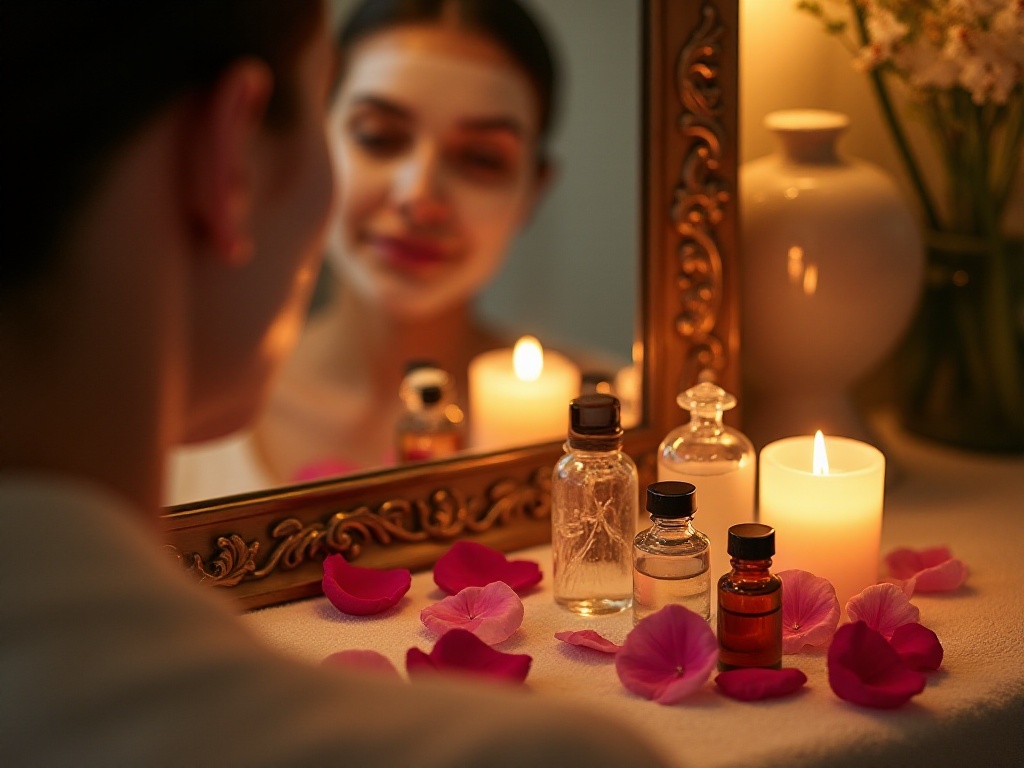Essential Introduction
As a post-95s generation member, I deeply understand how fast modern life moves. When I first started working, I was a complete homebody, spending my days either sleeping or scrolling on my phone, living life aimlessly. It wasn't until I saw my peers living actively and colorfully that I realized it was time for a change. After years of exploration and practice, I've developed a set of life efficiency principles suitable for young people, which I'd like to share with everyone now.
Morning Miracle
When it comes to early rising, I know many young people find it particularly painful. I used to stay in bed often, hitting the snooze button dozens of times. The most extreme case was when I had a 9 AM meeting and didn't get up until 8:40, realizing I didn't even have time for breakfast before rushing to the office. That embarrassing feeling remains unforgettable.
Later, I discovered that solving the difficulty of getting up was actually simple. I replaced my alarm with a smart speaker placed on my desk, forcing me to get up and walk over to turn it off. It was uncomfortable at first, but after a week, I found this method really worked. Plus, I set my favorite songs as the alarm sound, making waking up less unpleasant.
Speaking of the first thing after waking up, many people might immediately reach for their phones to scroll. But now I spend five minutes making my bed first. This habit has truly changed my life state. The University of Michigan's research isn't joking - making your bed really does improve work efficiency. And coming home at night to a neat bed creates an indescribable sense of comfort.
My current morning routine goes like this: get up immediately when the alarm sounds, drink a glass of warm water, then do 10 minutes of simple stretching exercises. These exercises don't require any special equipment, just basic stretching movements. After exercising, I feel energized and refreshed. Then comes washing up, making the bed, and getting dressed, all completed in a fixed order.
To make morning time more fulfilling, I listen to podcasts or news while washing up. This helps me stay informed about current events and learn new knowledge. For example, an economics podcast I've been listening to recently has given me a deeper understanding of financial management.

Evening Preparation
Evening preparation is truly crucial. I once did a small experiment, tracking how much time I spent scrambling to find things in the morning. I discovered that just looking for keys and choosing clothes took at least 15 minutes. After developing the habit of evening preparation, my quality of life immediately improved significantly.
I prepare everything I'll need for the next day before bed. This includes clothes, items in my bag, keys, etc. I choose clothes based on the next day's weather forecast and schedule. If I have important meetings the next day, I'll iron my formal wear. Everything is placed in fixed locations, so I can just grab them in the morning.
To make this preparation process more efficient, I created a simple checklist. Although it's become a habit now, when I'm too tired from work, I might still forget some details. With this checklist, I don't have to worry.
I also prepare breakfast for the next day before bed. For example, getting bread slices, jam, coffee beans ready. This way, I only need to do simple preparation in the morning to enjoy a delicious breakfast. It's important to know how much impact a nutritious breakfast has on your daily state.

Home Organization
Honestly, I used to hate doing housework. I always felt cleaning was a waste of time, and things would get dirty again soon anyway. But later I realized my method was wrong.
Now I follow the principle of "clean as you go." For example, while cooking in the kitchen, during the time waiting for ingredients to cook, I wash the pots and utensils I've already used. This not only makes efficient use of time but also avoids facing a table full of dirty dishes after meals.
Keeping a set of cleaning tools in each room is truly one of my great innovations. A small glass cleaner and cloth in the bathroom, a portable vacuum in the living room, and a multi-purpose cleaner in the kitchen. This way, when I see something dirty, I can clean it immediately without having to run to the storage room to find tools.
I also developed a "five-minute cleaning method." Every night before bed, I spend five minutes quickly cleaning the house. Sweep the floor, wipe the tables, arrange the cushions on the sofa. This way it doesn't feel too tiring while maintaining home cleanliness.
Oh, speaking of cleaning tools, I particularly recommend those foldable drying racks. They can be stored away to save space when not in use and unfolded when needed. This design is really suitable for young people living in small apartments.

Item Management
I learned the concept of "decluttering" from a Japanese book. At first, it seemed a bit extreme, but after actually practicing it, I found it was a real lifesaver. Last year, I did a thorough item purge, throwing away nearly a third of my things, including many "mementos" I was reluctant to part with.
During the cleanup, I discovered many things were kept because "I might need them later," but in reality, they weren't used even once a year. Like expired cosmetics, clothes bought years ago but never worn, various small gifts from events, etc. After clearing these things out, the whole room felt much lighter.
For storage, I now use "pixelated" management. This means categorizing all items and having fixed locations for each category. Clothes in the closet are sorted by season and type, books on the shelf by topic, and even stationery in drawers has specialized storage boxes.
Speaking of socks, I now only buy the same style. While this method might seem inflexible, it's really practical. No more worrying about finding matching socks, and no need to agonize over choosing styles when shopping. This method of simplifying choices can actually be applied to many daily items.

Leisure Plans
Leisure time outside of work is also important. I've noticed many young people's leisure activities are quite limited, either watching shows, playing games, or shopping. Actually, there are many leisure activities with better value for money.
For example, watching movies - I now mostly watch at home. With a projector and a simple speaker system, you can create a private theater. I also invite friends over to watch together, everyone commenting and critiquing, creating a great atmosphere. Plus, watching movies at home means you can pause anytime for bathroom breaks or snacks.
I also particularly enjoy cooking at home. I used to think cooking was troublesome, but after gradually trying it, I discovered that cooking is actually a great way to relax. Now I try new recipes on weekends, and when I make something delicious, I take photos to share on social media. Getting lots of likes really gives me a sense of achievement.
Additionally, I've discovered some free or low-cost leisure activities. Like having picnics in the park, joining library book clubs, visiting museum exhibitions, etc. These activities not only enrich life but also help meet like-minded friends.

Conclusion and Outlook
Through these life tips, I can save quite a bit of time each day. But more importantly, these habits have made my life more textured. Changing from someone who stayed at home all day to now having a regular life and working efficiently - this transformation really gives me a sense of achievement.
Actually, creating an efficient lifestyle isn't difficult; the key is to start with small things. For example, start with making your bed every day, and once that becomes a habit, try other changes. Take it slow, don't rush, and believe that everyone can find a lifestyle that suits them.
Finally, I want to say that these suggestions are just for reference. Everyone's life situation and needs are different; what's important is finding methods that work best for you. If you have any good life tips, welcome to share them in the comments section, let's improve together.
Let's work together to create a better life!




